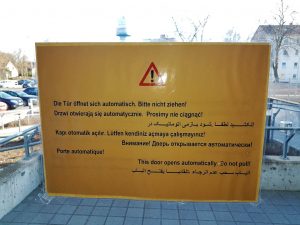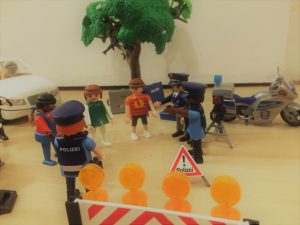The recent increase in the numbers of refugees and asylum seekers has made it obvious that Europe is changing rapidly, accelerating its ongoing but highly contested transformation into linguistically and ethnically more heterogeneous societies. The police are arguably one of the most crucial – and most discussed – state organisations that interact with an increasingly diverse clientele often labelled simply ‘migrants’. German media and the public look mainly at encounters between police officers and migrants occasioned by extraordinary events; emphasising cultural differences as an explanatory concept for the way interactions unfold. When looking at these encounters as everyday, often mundane interactions, however, it becomes apparent that the crucial underlying condition is first and foremost a difference in language. German police officers interact with migrants who do not speak, or only barely speak German, and thus German police officers increasingly work in a context of multilingualism. Indeed, they are supposed to engage in discretionary decision-making while not being able to understand their counterparts. Migrants, in turn, need to improvise linguistically, handle new notions and defend their insecure (legal) status in these interactions. The project studies how police officers and migrants translate between different languages and, beyond that, between different normative ideas in everyday interactions. By the act of translation, actors verbalise, negotiate, validate and question such ideas and beliefs. The perception of cultural difference is not a condition of the interaction but a potential, dynamic outcome of it.
Laufzeit: März 2019 bis März 2021
Förderung: Deutsche Forschungsgemeinschaft (DFG)
Jan Beek (Projektleitung), Thomas Bierschenk, Annalena Kolloch, Bernd Meyer, Marcel Müller (assoziierter Doktorand), Theresa Radermacher (assoziierte Doktorandin)


